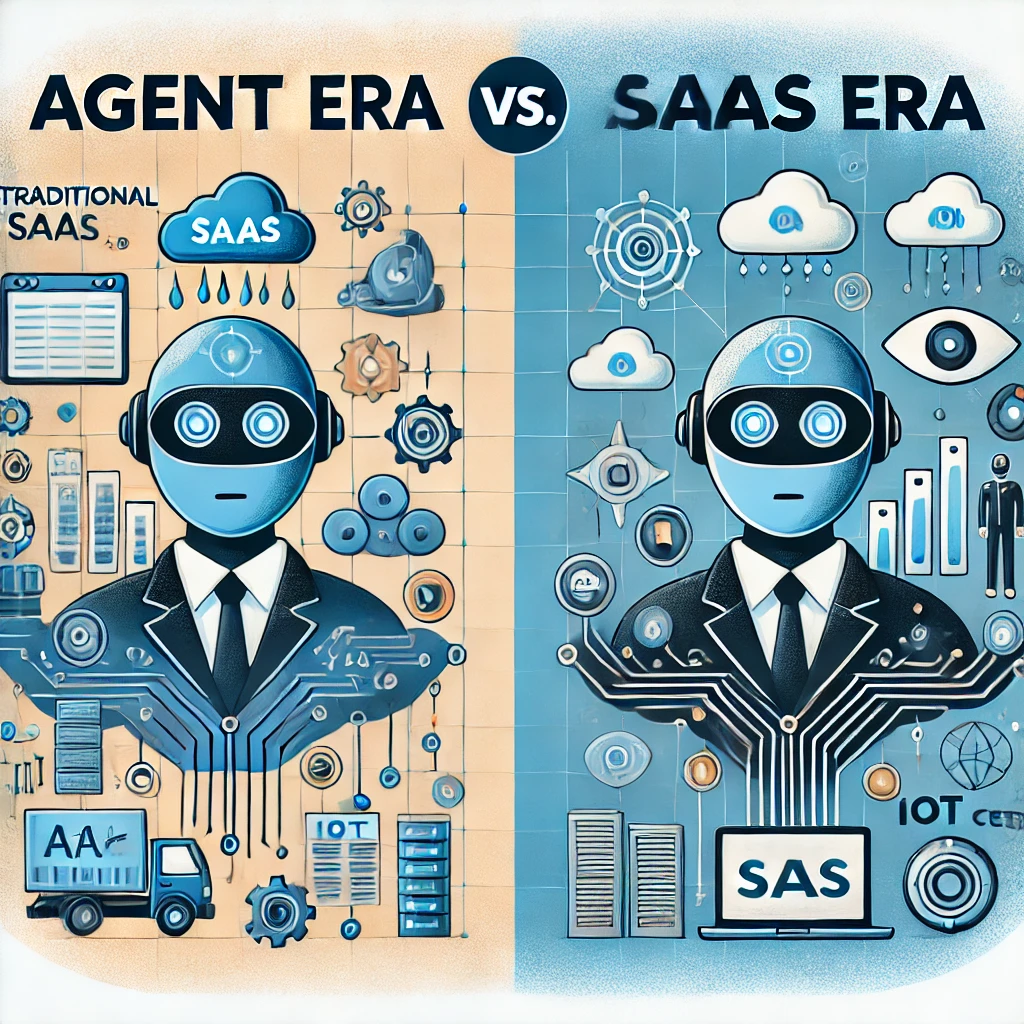The Rise of the AI Agents Era: Will It End the Software and SaaS Dominance?
The transformative power of software and Software-as-a-Service (SaaS) has revolutionized the digital era, providing unparalleled convenience and scalability, but is now facing unprecedented challenges from emerging AI-driven agents. However, with advancements in Artificial Intelligence (AI), a new contender has emerged: the “Agent Era.” This era, characterized by AI agents capable of autonomous and proactive decision-making, has the potential to challenge traditional software and SaaS solutions. In this article, we will explore the dynamics of this transformation, supported by examples of AI agents and their impact on existing software solutions.
1. Automation of Repetitive Tasks
Traditional Software/SaaS: Tools like Microsoft Excel and Google Sheets have been staples for managing data and performing calculations. Platforms like Zapier automate workflows between apps, requiring user-defined rules.
AI Agents: Tools such as UiPath and OpenAI Codex represent the shift toward agents that learn and automate tasks dynamically. For instance, UiPath’s AI-powered RPA bots can automate data entry, invoice processing, and more without manual scripting.
Example Link: UiPath
2. Personalization and Context Awareness
Traditional Software/SaaS: Email marketing platforms like Mailchimp provide automation capabilities but rely heavily on user-defined segmentation and rules.
AI Agents: Jasper AI and Copy.ai are examples of agents that generate personalized marketing content based on specific user needs, audience behavior, and preferences, offering hyper-customization compared to traditional SaaS.
Example Link: Jasper AI
3. Shift Toward Proactive Systems
Traditional Software/SaaS: CRMs like Salesforce require users to input and analyze customer data manually.
AI Agents: Tools like HubSpot’s AI assistant and Drift AI proactively analyze customer interactions and suggest or execute actions such as lead prioritization or automated follow-ups.
Example Link: Drift AI
4. Advances in Natural Language Processing (NLP)
Traditional Software/SaaS: Helpdesk platforms like Zendesk rely on static FAQs or ticket-based query resolution.
AI Agents: ChatGPT by OpenAI and IBM Watson Assistant provide conversational interfaces capable of understanding complex queries, learning from interactions, and improving over time. These agents reduce dependency on traditional helpdesk tools.
Example Link: ChatGPT
5. Integration of IoT and Edge Computing
Traditional Software/SaaS: Platforms like AWS IoT Core focus on cloud-based IoT management, requiring significant configuration.
AI Agents: Autonomous systems like Nuro (self-driving delivery vehicles) and Tesla’s Full Self-Driving (FSD) represent agents using real-time IoT data to make decisions independently, bypassing traditional software ecosystems.
Example Link: Tesla Full Self-Driving
6. Cost Efficiency
Traditional Software/SaaS: Project management tools like Asana and Trello provide predefined templates and workflows but rely on manual updates.
AI Agents: Notion AI integrates AI capabilities to automatically summarize meeting notes, suggest task prioritization, and even draft content, reducing operational overhead.
Example Link: Notion AI
Challenges for the AI Agents Era
While the agent era holds immense promise, challenges such as data privacy, trust, regulatory compliance, and legacy system integration pose significant barriers. AI agents must navigate these hurdles to replace traditional SaaS effectively.
Conclusion: The Hybrid Future
Rather than replacing the SaaS era entirely, AI agents are likely to integrate with and enhance existing systems. For instance, Salesforce Einstein integrates AI-driven insights into the Salesforce ecosystem, providing a hybrid model of traditional SaaS enhanced by intelligent agents.
The question is not whether the agent era will dominate but how software and SaaS solutions will adapt to leverage the benefits of intelligent agents. Organizations must prepare for this shift by exploring AI-driven tools, integrating them into existing workflows, and fostering a culture of innovation.
The “agent era” is here to stay, and its competition with traditional software is just beginning. Businesses must stay informed and proactive to harness the best of both worlds.
